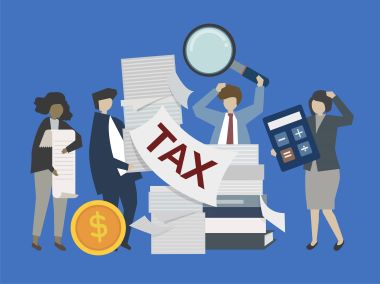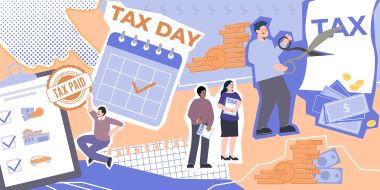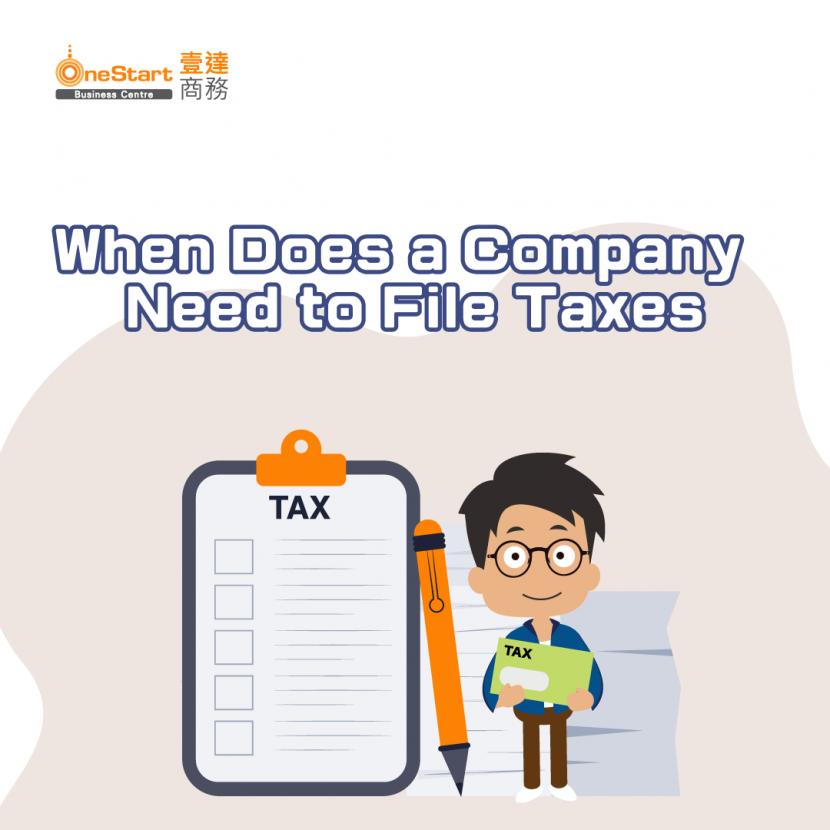Related Article:
3 Key Tips to Help through Audits Effortlessly in Hong Kong
Profits Tax in Hong Kong Explained, 3 Tips for Easy Tax Return
Table of contents |
Corporate tax filing has always been an important and complex issue. Whether dealing with an unlimited or limited company, it is the statutory responsibility of company directors to submit tax returns on time and handle tax matters properly. This article provides a detailed breakdown of the tax filing process in Hong Kong, highlights key considerations, and explains the differences in tax filing between limited and unlimited companies, helping you to navigate the tax season with ease and manage your company’s financial affairs efficiently.
1. Understanding the Fiscal Year and Year-End Date
Before discussing the tax filing schedule, it is essential to understand two key concepts: the fiscal year and the year-end date.
Fiscal Year:
The fiscal year is the 12-month period used by a company for accounting purposes. In Hong Kong, companies can choose the start and end dates of their fiscal year. Typically, companies align their fiscal year with the calendar year (January 1 to December 31) or with the Hong Kong Inland Revenue Department's tax year (April 1 to March 31).
Year-End Date:
The year-end date refers to the last day of the company's fiscal year. This date is crucial for the tax filing schedule as it determines when the company needs to submit its tax returns. For more detailed information, refer to the related article: Fiscal Year-End: How Should a Company Choose an Appropriate Fiscal Year-End Date?

2. Tax Filing Schedule for Limited and Unlimited Companies
Limited Company Tax Filing Procedures:
All limited companies registered in Hong Kong must audit their financial statements before filing tax returns and complete the Profits Tax Return (BIR51) based on the audit report.
The Inland Revenue Department issues the tax return on the first working day on or after April 1 each year.
The company must return the completed tax return and relevant documents within one month of issuance..
Extension of Tax Filing Deadline:
- Code N (April 1 to November 30): No extension
- Code D (December 1 to December 31): Extended to August 15
- Code M (January 1 to March 31): Extended to November 15
- Loss-making companies: Extended to January 31 of the following year
Limited Company Tax Filing Process:
After receiving the tax return from the Inland Revenue Department, submit the financial statements to an auditor for auditing.
- Complete the tax return based on the audit report.
- Submit the completed tax return and profits tax computation to the Inland Revenue Department.
- Wait for the Inland Revenue Department to assess the tax and issue a tax payment notice.
- Confirm the tax amount and pay the tax by the specified date.
Starting from 2023, all companies and businesses, regardless of total revenue or the method of submitting tax returns, must submit the Profits Tax Return along with all supporting documents including financial statements and profits tax computation .
Unlimited Company Tax Filing Procedures:
Unlimited companies, including partnerships and sole proprietorships, follow a slightly different tax filing process and do not need to submit audit reports.
Partnership Tax Filing:
- Partnership Tax Filing: Profits Tax Return (BIR52)
- Annual Tax Filing Date: The first to third working days of April each year, with a one-month deadline to submit the completed form.
- Extension Application: Extensions can be applied for under the same rules as for limited companies.
Sole Proprietorship Tax Filing:
- Tax Return Form: Declare business income in Section 5 of the Individual Tax Return (BIR60)
- Tax Filing Date: The first to third working days of May each year, with a one-month deadline to submit the completed form.
- Extension Application Generally, extensions are not granted unless there are special circumstances.
Unlimited Company Tax Filing Process:
- Unlimited companies do not need to submit an audit report but must prepare proper accounting records and other supporting documents.
- If revenue exceeds HK$2,000,000, a profit and loss account and balance sheet must be attached to the tax return.
- Wait for the Inland Revenue Department to assess the tax and issue a tax payment notice.
- Confirm the tax amount and pay the tax by the specified date.

3. Q&A:
Q1: If a company did not operate during the fiscal year, does it still need to file taxes?
A: Yes, even if the company did not operate during the fiscal year, it is still required to submit a tax return and audit report.
Q2: Can the company's fiscal year be changed?
A: Yes, the company can apply to the Inland Revenue Department to change the fiscal year. However, note that changing the fiscal year may affect the tax filing schedule and tax calculation.
Q3: What happens if the tax filing deadline is missed?
A: Missing the tax filing deadline may result in fines. If you cannot file on time, it is advisable to contact the Inland Revenue Department as soon as possible to explain the reason and apply for an extension.
Q4: In what situations is tax filing required?
A: This depends on the specific circumstances. Generally, if profit-generating activities are carried out in Hong Kong or contracts are signed and executed in Hong Kong, the income is considered to be sourced in Hong Kong. If in doubt, it is recommended to consult a professional tax advisor.
Q5: Are there differences in profits tax rates between limited and
A: Yes, the profits tax rates for limited and unlimited companies are as follows:
Limited Companies:
- First HK$2,000,000 of assessable profits: 8.25%
- Remaining assessable profits: 16.5%
Unlimited Companies:
- First HK$2,000,000 of assessable profits: 7.5
- Remaining assessable profits: 15%

4. Conclusion
Accurately understanding and complying with Hong Kong’s corporate tax filing schedule is essential for legal business operations. Whether dealing with a limited or unlimited company, it is crucial to arrange tax filing tasks according to your fiscal year and year-end date. Timely preparation of financial statements, collection of relevant documents, and seeking professional assistance when necessary can help companies fulfill their tax obligations more effectively.
Remember, tax filing is not only a legal requirement but also an opportunity for companies to review their financial status. Through regular and accurate tax filing, companies can gain a better understanding of their financial health and make more informed decisions for future development.
OneStart Business Centre has years of experience and dedicated staff to assist enterprises in Company Tax Filing. Please feel free to call or WhatsApp (852) 3575 6888 to our OneStart Business Consultant.
Click to WhatsApp OneStart:
Know More About Our Services:
 |
 |
 |













